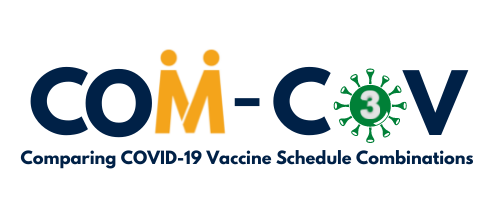Com-COV 3 COVID-19 vaccine study calls on teenager volunteers in south London
Researchers running the University of Oxford-led Com-COV programme have started enrolling young people aged 12 to 16 years old to receive a second dose of a COVID-19 vaccine, including in south London.
Backed through funding from the Vaccines Taskforce and National Institute for Health Research (NIHR) and run across several NIHR-supported sites by the National Immunisation Schedule Evaluation Consortium, the Com-COV 3 trial is seeking to recruit 360 volunteers. The study has already opened at six sites in the UK, and is expanding to nine new recruiting areas, with recruitment happening locally at St George’s University Hospitals NHS Foundation Trust.
Professor Matthew Snape, Associate Professor in Paediatrics and Vaccinology at the Oxford Vaccine Group, and Chief Investigator on the trial, said: “Teenagers are currently experiencing the highest rate of infections of all age groups in the UK. This study will be critical to delivering vital information on the range of options for immunising teenagers against COVID-19 in the UK to help control this. Therefore, we are asking for 12 to 16 years olds to take this opportunity to receive a second dose of vaccine and help us understand how best to immunise teenagers to protect them and their families.”
All participants will be randomly allocated at the time of their second dose to receive either a full second dose of the Pfizer vaccine, a one-third dose of the Pfizer vaccine, a full dose of the Novavax vaccine or a half dose of the Moderna vaccine. These vaccines will be administered at least eight weeks after their first dose, and sites hope to complete this stage of the study by early December.
The current UK guidance is that all adolescents aged 12 to 17 are offered a first dose of the vaccine. Younger people at a greater risk of serious illness if they catch COVID-19 are currently offered two doses. The results from the study will provide the JCVI (Joint Committee on Vaccination and Immunisation) with timely and crucial information about immunising teenagers in the UK.
Professor Matthew Snape said: “We are very grateful to those young volunteers and their parents who have signed up for the study so far. We hope the addition of new trial sites will encourage even more participants to get involved in this critically important research.”
The study is single-blind and randomised, meaning participants will not know what second dose of vaccine they are receiving. Researchers will assess reactogenicity (any side effects) and immune system responses to these new combinations of vaccines.
Professor Andrew Ustianowski, NIHR Clinical Lead for the COVID-19 Vaccination Programme and Joint National Infection Specialty Lead, said: “By getting involved in this study, volunteers will be able to help researchers develop our understanding of how we can best protect teenagers against COVID-19.
“Thanks to the generosity of thousands of vaccine study participants over the past 18 months, we have been able to reduce the impact and spread of COVID-19 with approved vaccines. Once it has reached its target, Com-COV 3 will be a pivotal study that is expected to provide important data that will lead directly to UK guidance on protecting young people and their families.”
Professor Paul Heath, Principal Investigator of the trial at St George’s, University of London, said: “Volunteers for this study will be among the first teenagers in the country to receive a second dose of a COVID-19 vaccine, with follow-up appointments to check in with each participant. This is a great opportunity for young people to step forward and get involved in research that will determine the best way to protect themselves and their peers against COVID-19.”
All those who are interested can register via the study website comcovstudy.org.uk
Notes to editors
For an interview with the lead researchers, please contact: news.office@admin.ox.ac.uk or call 01865 280528.



